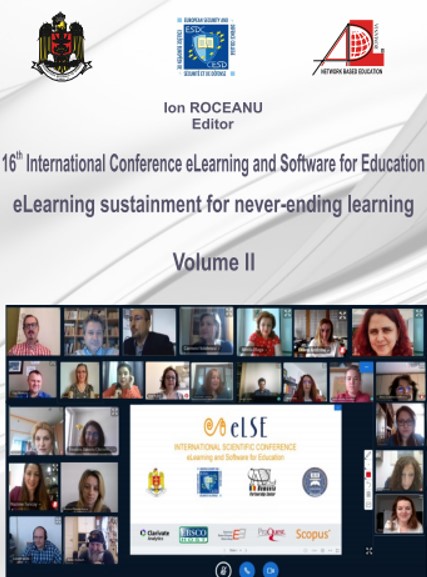IMMERSIVE DATA ANALYTICS FOR ENHANCING ORGANISATIONAL KNOWLEDGE TRANSFER PROCESSES THROUGH A CUSTOM DEVELOPED VIRTUAL REALITY FRAMEWORK
IMMERSIVE DATA ANALYTICS FOR ENHANCING ORGANISATIONAL KNOWLEDGE TRANSFER PROCESSES THROUGH A CUSTOM DEVELOPED VIRTUAL REALITY FRAMEWORK
Author(s): Dragos Sebastian Cristea, Carmen Rusu, Luigi Renato Mistodie, Marius Ivanov, Andrei LeontinSubject(s): ICT Information and Communications Technologies, Distance learning / e-learning, Pedagogy
Published by: Carol I National Defence University Publishing House
Keywords: virtual reality; immersive data analytics; data science; e-learning; knowledge transfer;
Summary/Abstract: During the past years, virtual reality (VR) and augmented reality (AR) improved a lot from both accessibility and hardware capabilities perspectives. Currently, this type of software applications is encouraged to be part of various domains. This paper presents how virtual reality technologies can provide a novel, immersive, approach of one of the most used data science tasks, respectively data analytics, that can be used to enhance the effectiveness of the organizational knowledge transfer. Knowledge transfer, a process used in various industries including education, business, social and technology, plays an important role in the overall learning process, introducing new ways of sharing resources and people experience. As a data scientist, it is usually said that about 80% of the time will be used doing EDA (exploratory data analytics scenarios). Our research targeted the enhancement of organizational knowledge transfer processes by using immersive EDA. Our paper emphasizes the fact that VR offers extended possibilities for sustaining data analytics strategies, improving them with a new immersive perspective. Virtual learning environments can be used to build skills and one challenge for virtual reality, when applied in education or training, is to assess Virtual Environments effectiveness. Immersive data analytics can ease the effort of quantifying how effective a specific virtual scenario was for a group of users. The presented study also emphasises on how VR technologies can provide more detailed immersive analytics that can be used in optimizing knowledge transfer and implicitly learning processes, by potentially analysing every move of the learners, assessing the evolution of the user learning/performance, respectively understanding user reaction speed (response times) in various contexts similar to real world scenarios. Also, through immersive analytics, it is possible to determine learners emotional state and their level of attention, being possible to provide a more personalised interactive experience for enhancing learning efficiency.
Journal: Conference proceedings of »eLearning and Software for Education« (eLSE)
- Issue Year: 16/2020
- Issue No: 02
- Page Range: 92-100
- Page Count: 9
- Language: English

